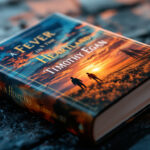Every Man for Himself and God Against All – A Werner Herzog’s Memoir
Werner Herzog isn’t just a filmmaker—he’s a storyteller who reshapes how we see the world. His memoir, Every Man for Himself and God Against All, is as unconventional as the man himself. Packed with stories that span decades, the book captures Herzog’s unique way of blending humor, philosophy, and raw honesty. From the chaos of filmmaking to reflections on life’s hardships, it’s a fascinating glimpse into his mind. Whether you’re a fan of his films or just curious about the stories behind them, this memoir promises something unforgettable.
Getting to Know Werner Herzog: The Man and His Memoir
Werner Herzog’s name is synonymous with bold storytelling and an unflinching curiosity about the human condition. For decades, he has been a force in cinema, creating films that feel as much like philosophical explorations as they do visual journeys. His memoir, Every Man for Himself and God Against All, offers a candid dive into the mind of this enigmatic figure. To fully appreciate the book, it helps to understand both Herzog’s unique upbringing and how his storytelling style is reflected in his memoir.
A Glimpse into Herzog’s Life
Werner Herzog was born in 1942 in Munich, Germany, during the chaos of World War II. Raised in a small Bavarian village, he lived without basic amenities like electricity and running water—a childhood far removed from modern luxuries. These experiences shaped his perspective on life, fueling his fascination with human resilience and survival.
Post-war Bavaria provided Herzog with a backdrop of rebuilding and transformation, which became recurring themes in his work. This rural upbringing, paired with a sense of isolation, inspired a deeply introspective quality in his storytelling. PBS NewsHour shares insights into how Herzog’s early environment shaped his creative impulses. He once walked hundreds of miles to see a dying mentor, proving that his worldview has always been grounded in action and tenacity.
Herzog is not just a filmmaker but a chronicler of extremes—confronting danger in both his art and life. Themes of hardship, endurance, and transformation recur throughout his films and writings, reflecting the adversities he encountered growing up in a war-torn Germany.
What Makes This Memoir Unique
Herzog’s Every Man for Himself and God Against All isn’t just a chronicle of his achievements; it’s an unfiltered look into an unconventional life. Unlike traditional memoirs that follow a clear timeline, Herzog’s book takes a nonlinear, free-associative approach. This structure mirrors the way Herzog crafts his films—not with a rigid plotline but with a focus on evocative moments and deeper truths.
The memoir reads like a collection of vivid memories and reflections, jumping between significant events and philosophical musings. It feels more like sitting down to talk with Herzog rather than reading a polished, chronological autobiography. As highlighted in The Guardian, this format allows readers to experience Herzog’s mind in its raw and unfiltered form. His ability to find profound meaning in the ordinary becomes evident, tying his unique storytelling technique to his inner thoughts.
The structure doesn’t just entertain—it challenges the reader to think differently. Much like his films, the memoir reflects Herzog’s belief in “ecstatic truth,” a term he uses to describe truths found in imagination and emotion, rather than just facts. The New York Times review praises this aspect of the book, noting how Herzog blends the ordinary with the extraordinary, making every page unpredictable.
By stepping away from a linear narrative, Herzog shows us how fragmented memories can still weave a cohesive picture of a life lived with intensity and purpose. It’s not about crossing off milestones; it’s about collecting experiences and reflections, just as his films piece together symbolic imagery to tell larger truths.
Themes of the Memoir: Humanity, Struggle, and Untamed Realities
Werner Herzog’s memoir, Every Man for Himself and God Against All, offers more than just a glimpse into the filmmaker’s personal journey. It unpacks profound themes that resonate with the shared experiences of humanity. Through vivid storytelling and philosophical introspection, Herzog probes at topics like human struggle, truth, and the raw confrontation with nature. These elements not only define his life but also influence his cinematic works.
The Philosophical Lens: Pain and Truth
Herzog doesn’t shy away from pain—in fact, he seeks it out, not masochistically, but as a means to understand life’s deeper truths. Pain, as he suggests, is often the price of insight. His concept of “ecstatic truth” plays a vital role in his philosophical outlook and creative vision. Unlike traditional notions of truth, which lean on factual accuracy, Herzog’s truth exists within emotions, imagination, and raw human experience. This is why he can find transcendence in unexpected places—a shattered relationship, a perilous mountain climb, or an actor’s breakdown on set.
Herzog describes his work, not just his films but his life itself, as a quest (yes, he uses the term unapologetically) for something more meaningful than factual accuracy. In one of his famous proclamations, captured in The Minnesota Declaration (Walker Art), he criticizes obsession with cold facts in documentaries. For Herzog, the interplay of pain and creativity births a richer narrative—one that captures human emotion in ways logic never could.
This lens colors not only his filmmaking but also the way he recounts his life in this memoir. As noted in Full Stop, Herzog uses storytelling to transcend the ordinary. His reflections seemingly court discomfort, yet they are also liberating, urging readers to embrace emotional honesty over surface-level perception. In many ways, Herzog displays a rare comfort with the vulnerability of truth—it aches, but it connects.
Struggle Against the Universe
Nature, in Herzog’s narrative, isn’t a tranquil escape—it’s a force of chaos and indifference. His stories are steeped in humanity’s efforts to wrest meaning from an often unyielding universe. Whether it’s characters battling hostile jungles or individuals pushing their physical and emotional limits, these stories echo the same theme: struggle defines existence, and it’s in this resistance to life’s brutality that meaning is forged.
Herzog’s experiences with nature are raw and primal. In a world full of sanitized depictions of the outdoors, he insists on showing its untamed edge. “Paste Magazine” highlights how his work sheds light on the existential challenge of coexisting with an uncaring natural order. Yet struggle, as Herzog sees it, isn’t cause for despair—it is the essence of humanity’s will to survive and create. This perspective defines key chapters of the memoir, where he tackles not just natural challenges but also the insurmountable odds of navigating relationships, filmmaking, and personal identity.
In Herzog’s world, humans are often at odds with their surroundings, and this opposition becomes a stage for moral and existential inquiry. Whether recounting moments from films like Fitzcarraldo, which battled the Amazon jungle itself, or personal anecdotes, the memoir underscores an enduring tension between humankind and the unruly elements of existence. New York Times observes that Herzog’s writing captures these struggles with the same ferocity and wonder that permeates his films.
Ultimately, Herzog’s exploration of struggle defines his broader view of life: Survival is an act of creation. In grappling with chaos—whether from nature, society, or within ourselves—we carve out a place for meaning, however fleeting it may be. Through his storytelling, Herzog calls readers to confront their own battles with authenticity, making his memoir not just a recount of his life, but a mirror for our own.
The Filmmaker’s Perspective: Insights into Herzog’s Creative Process
Werner Herzog’s memoir, Every Man for Himself and God Against All, provides a fascinating glimpse into the mind of a filmmaker who has continually pushed the boundaries of creative storytelling. His reflections on his life and art are inseparable from his distinctive filmmaking philosophy, which prioritizes human perseverance and the search for deeper truths. The book also sheds light on his complex relationships with remarkable personalities like Klaus Kinski and Bruce Chatwin, revealing their multidimensional roles in both his life and his art.
Herzog’s Filmmaking Philosophy: The Connection to Human Perseverance
Herzog’s films are not mere works of art—they are challenging emotional and physical journeys for both the filmmaker and the audience. His approach to filmmaking is deeply intertwined with his views on the human spirit’s resilience, a theme that echoes through the pages of his memoir. The stories he narrates—whether about surviving unthinkable situations or tackling creative adversity—mirror the struggles and triumphs that define his films.
In his work, Herzog often prioritizes what he calls “ecstatic truth,” a deeper reality that transcends mere facts. This philosophy is exemplified in films like Fitzcarraldo and Aguirre, the Wrath of God, where characters endure incredible hardships to capture their dreams. Much like in these films, Herzog’s memoir is scattered with tales of perseverance, such as trekking across treacherous terrains or enduring grueling shoots to achieve a creative vision. According to The New Yorker, Herzog dismisses introspection in favor of action, and his willingness to face challenges becomes central to his storytelling.
What sets Herzog apart is his ability to craft narratives that present hardship as an integral part of the human experience. His memoir illustrates this through anecdotes that reflect his uncompromising commitment to overcoming obstacles. As explored in this discussion on his cinematic ideology, Herzog believes true art is not found in convenience or comfort but is forged in the fires of struggle. He invites readers to see this ethos not just as a creative choice but as a profound way of perceiving life itself.
Memories of Icons: Klaus Kinski and Bruce Chatwin
Herzog’s life and career have been heavily marked by his relationships with two very different yet equally intriguing figures—Klaus Kinski, his volatile muse, and Bruce Chatwin, the charismatic writer. Their personalities left an indelible impression on Herzog’s work and are central to several episodes in his memoir.
Herzog’s collaborations with Klaus Kinski were legendary, not just for the films they produced but for their fiery and unpredictable dynamic. Described by Jesuit Roundup, their relationship was a tempestuous blend of creation and destruction that bordered on chaos. Kinski’s intensity both frustrated and inspired Herzog, culminating in films like Cobra Verde and Aguirre, the Wrath of God. The memoir delves into these tumultuous yet productive interactions, offering transformative lessons about working with creative, yet challenging, individuals.
On the other hand, Herzog’s relationship with Bruce Chatwin was marked by a sense of mutual admiration. Chatwin’s appetite for adventure and storytelling found a kindred spirit in Herzog, as they shared an obsession with uncovering the mysteries of human existence. Herzog’s film Nomad: In the Footsteps of Bruce Chatwin serves as both a tribute and an extension of their friendship, providing a lens through which we can understand Herzog’s fascination with storytelling. Medium highlights how their shared experiences informed Herzog’s approach, allowing him to portray diverse perspectives with authenticity.
Through these interactions, Herzog’s memoir doesn’t just recount his personal experiences but also reveals how these larger-than-life characters influenced his perspective on art and life. Whether navigating Kinski’s emotional volatility or discussing storytelling over a bottle of wine with Chatwin, Herzog’s relationships are a testament to the collaborative and, at times, combative nature of creative brilliance.
By unpacking these stories, Herzog allows readers a closer look into the unique relationships that have shaped his understanding of humanity, persistence, and the unfiltered pursuit of truth.







